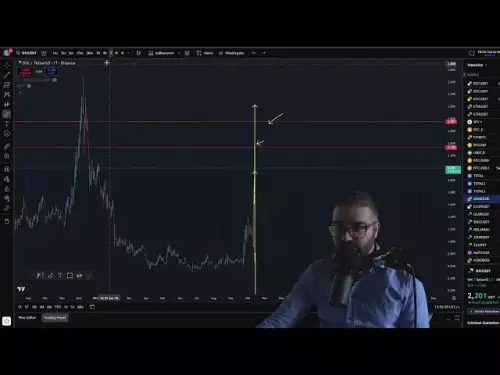
Bitcoin, Central Banks, and Key Asset Status: A Shifting Landscape
Bitcoin's journey from a fringe digital currency to a potentially integral part of central bank balance sheets is gaining traction, with analysts predicting growing acceptance despite traditional skepticism. This blog post delves into the arguments for and against Bitcoin's future as a key asset.
The Bullish Case: Bitcoin as Digital Gold
Deutsche Bank analysts suggest Bitcoin is following gold's footsteps, overcoming initial skepticism to become a recognized store of value. The comparison to gold is apt: both are seen as hedges against market instability, offering a safe haven during economic uncertainty. The idea of central banks holding Bitcoin reserves, once a radical notion, is gaining credibility.
VanEck's 2025 Crypto Market Report: A Mixed Bag
VanEck's September 2025 report paints a nuanced picture. Digital Asset Treasuries are growing, driven by institutional investment in ETH. However, the report also notes a decline in overall market volatility, leading to stagnation and decreased blockchain revenues. Bitcoin bucked the trend, rising 5% while Ethereum fell 5%. The report highlights the inherent volatility and cyclical nature of the crypto market.
The Skeptic's View: Transparency and Control
Hedge fund titan Ray Dalio remains cautious, questioning Bitcoin's viability as a reserve currency. His primary concern revolves around transparency. Central banks, he argues, prioritize privacy and regulatory control, making Bitcoin's public ledger a potential obstacle. While acknowledging Bitcoin's 'hard money' characteristics, Dalio emphasizes its code-related risks and lack of confidentiality.
Counterpoints and Community Pushback
Crypto analysts like Adam Livingston challenge Dalio's perspective, arguing that Bitcoin's transparency is a strength, preventing the opacity that contributed to past financial crises. Livingston also defends Bitcoin's cryptographic foundation, asserting its resilience against hacking attempts. This highlights the ongoing debate between traditional finance and the crypto community.
Dalio's Evolving Stance and Portfolio Allocation
Despite his reservations, Dalio has softened his stance over time, admitting to owning Bitcoin, albeit in modest amounts. He recognizes its limited supply and acknowledges its potential as a portfolio diversifier, echoing sentiments from investors like Robert Kiyosaki, who advocate for including Bitcoin alongside gold and silver to hedge against economic turmoil.
The Road Ahead
The journey of Bitcoin towards becoming a mainstream asset and a component of central bank reserves is complex and uncertain. Overcoming regulatory hurdles, addressing concerns about volatility and security, and achieving broader public acceptance are key challenges. However, as the digital landscape evolves, Bitcoin's role in the financial ecosystem is undeniable, sparking ongoing debate and shaping the future of finance.
So, will Bitcoin become a staple in central bank vaults? Only time will tell. But one thing's for sure: it's keeping the financial world on its toes, and that's a good thing! Now, if you'll excuse me, I'm off to check my crypto portfolio... just kidding (mostly)!























































































